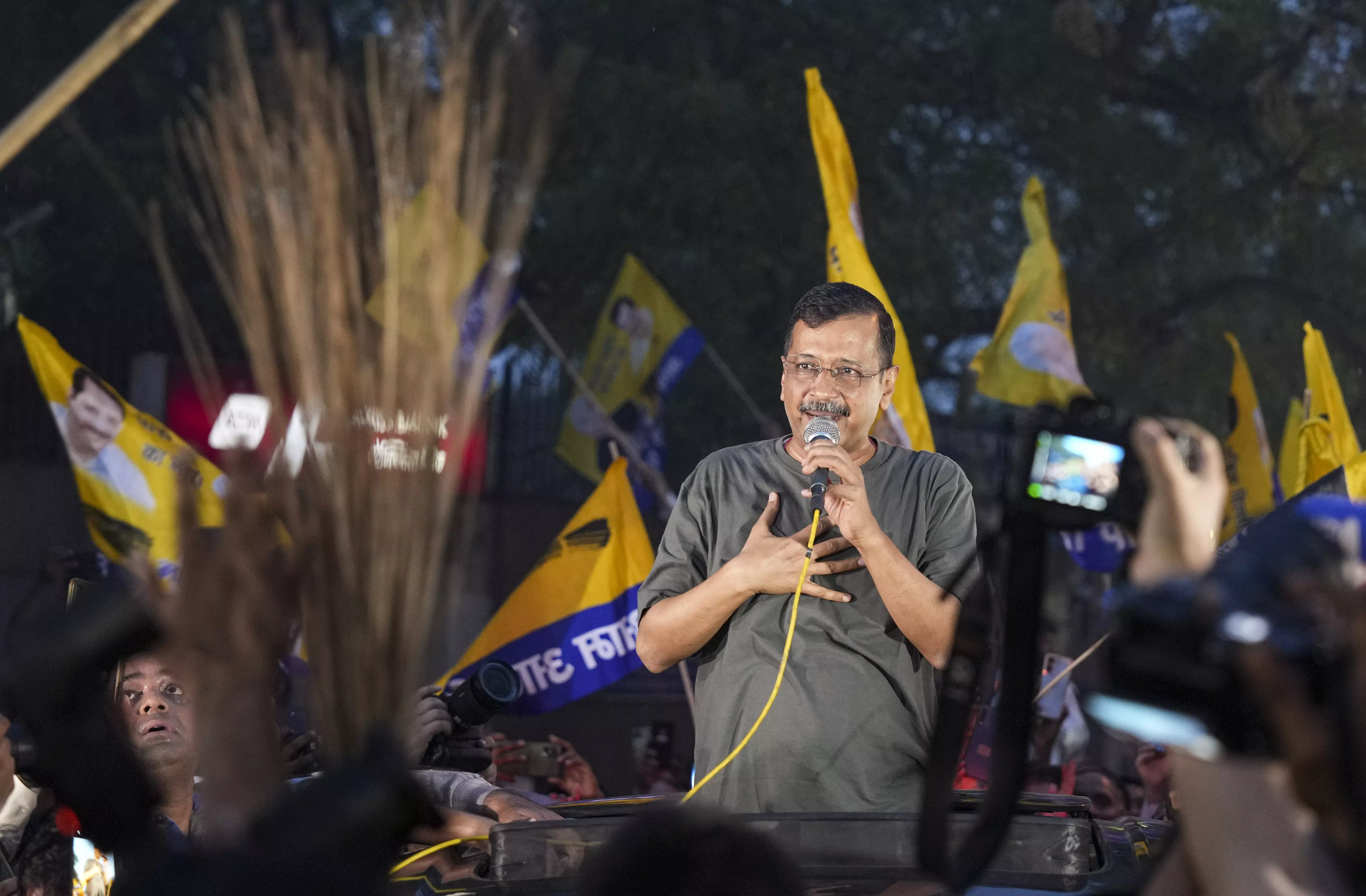DC Edit | Ray of justice seen in ‘poll’ bail for Kejriwal

Arvind Kejriwal is a free man till the end of the Lok Sabha polls on June 1. In granting him interim bail for campaigning, the Supreme Court has upheld the right of the Delhi chief minister and head of the Aam Aadmi Party to take part in the election campaign and vote. Justice has been rendered to an extent, but it is not a blanket order since many others, including his former deputy CM Manish Sisodia, remain in jail in the same “liquor-gate” case.
The money laundering case linked to a scrapped Delhi liquor policy registered against him remains and he will return to Tihar Jail on June 2. The implications of the verdict, delivered by a bench of Justices Sanjiv Khanna and Dipankar Datta, are far-reaching. It could be argued that the release of a star campaigner could influence the polling.
The conditional bail order sets a sort of precedent in cases involving the PMLA Act which by its very nature of being draconian could be misused by those in authority to muzzle political opponents. Of course, the merits of the case are yet to be examined in detail before a verdict is pronounced on whether members of the Delhi Cabinet were conspirators in a liquor policy scam for the benefit of their political party.
The orders served in similar cases, some linked to the same Delhi liquor policy change and another significant one in the arrest of the former Jharkhand chief minister Hemant Soren — who, incidentally, is still in jail with his right to campaign not having brought him equivalent relief — have been mixed, though one of the judges has been a constant in many of the benches that dealt with the cases against other politicians regarding the granting of regular bail.
Considering the current circumstances when the country is in the middle of parliamentary elections, the Kejriwal case assumes great significance. On the one hand is the charge that the ruling party has been prone to using Central investigative agencies to put many opponents in jail, especially by using the PMLA with its stringent conditions devolving upon the accused to prove their innocence.
On the other hand, Mr Kejriwal had not set a very good example in ducking multiple summonses from Central agencies over nine months that his ultimate arrest came much closer to the polls and thus brought this angle of it infringing the democratic right of an individual. No court is likely to be as sympathetic if a common man was to ignore summons in this manner.
The ED delaying Mr Kejriwal’s arrest after registering an ECIR in August 2022, as pointed out by the court, the ED refusing to accept lawyers’ offer to present all documents called for and Mr Kejriwal ducking summons on the grounds that the charges were politically motivated, had led to an impasse until his arrest on March 21. What the bail order has done is to level the electoral playing field that had been skewed by arrests and the tendency of the investigating agencies to make the process itself the punishment more than bringing graft cases registered against prominent politicians to a conclusion.
Whatever be the denouement, it is now established that political priorities have a way of trumping everything else in India, even if the court insists that this interim bail will not set a precedent. And yet there is a ray of justice to be seen in Mr Kejriwal being given time off to seek votes for his party and the national alliance it has joined.

